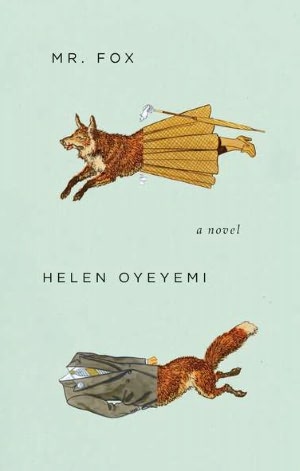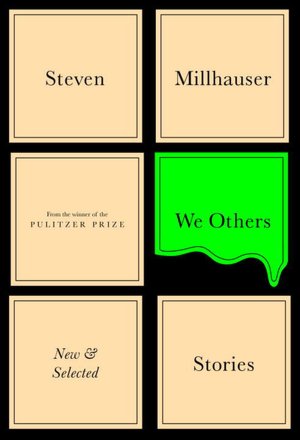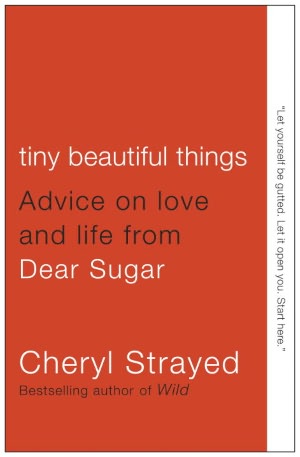 There is a house---a camp, really---on a lake in New Hampshire that is owned by my husband's extended family. It houses many generations of strong women; a matriarchal household in every sense of the word. Bought in 1948 by my husband's great uncle and his wife, many of the women who now run the house during the summer and collectively supervise their kids running through the woods and swimming in the lake grew up traipsing through the same woods and swimming in the same waters. It's a family with deep roots and a well-documented tree, but one that is also made of people who have been brought in and enmeshed through skinny dips and grilled hot dogs. Stand in the kitchen long enough, and you'll hear one of the women say "did you hear about the time when..." before the rest of them break out in peals of laughter that carry down to the lake and across the water. The more time you spend here, the more clearly the ghosts materialize and give a sense of tradition to the rhythm of the day that has survived with the minimal necessary evolutions for over 60 years. Claude and Phyllis (the couple who bought camp) skinny dipping early in the morning and serving hot dogs and milkshakes for lunch; the bouncing Jack Russell terrier begging to be let in by appearing in two second intervals in the open top half of the Dutch door on the porch (after chasing a squirrel into its hole and getting his face stuck in its burrow); my mother-in-law first learning to waterski by sitting on the shoulders of her cousin as the boat pulled them both up. In these stories, the men are key players to be sure, but their narratives remain peripheral. The driving characters of the stories of camp are the women.
I am weaving myself into the fabric of this family, first as a girlfriend, then a wife---a friend, a mother, an aunt. The Christmas before I married Jordy, the ladies of camp bought me a beach towel with my name embroidered on it. It was to be left here for the winters, awaiting my return each July. I took the gift as a statement: just as there was a place in the hall linen closet for my new towel, there was a place in this family for me. I've come here this week for a family vacation. My in-laws are here, and my husband has a rare break from work. This is more than a vacation, though. By coming here, I get to reconnect with women (and their kids) who I see maybe twice per year, but to whom I feel viscerally connected. They've held me in hard times, called me sister in happy times, and loved me unconditionally through both. For 64 years, the women of camp have gathered by the water, surrounded by bronzed children of various ages to discuss our lives, to discuss current events, to discuss what to make for dinner, to discuss what we're reading. We call ourselves "the ladies of the beach."
There is a house---a camp, really---on a lake in New Hampshire that is owned by my husband's extended family. It houses many generations of strong women; a matriarchal household in every sense of the word. Bought in 1948 by my husband's great uncle and his wife, many of the women who now run the house during the summer and collectively supervise their kids running through the woods and swimming in the lake grew up traipsing through the same woods and swimming in the same waters. It's a family with deep roots and a well-documented tree, but one that is also made of people who have been brought in and enmeshed through skinny dips and grilled hot dogs. Stand in the kitchen long enough, and you'll hear one of the women say "did you hear about the time when..." before the rest of them break out in peals of laughter that carry down to the lake and across the water. The more time you spend here, the more clearly the ghosts materialize and give a sense of tradition to the rhythm of the day that has survived with the minimal necessary evolutions for over 60 years. Claude and Phyllis (the couple who bought camp) skinny dipping early in the morning and serving hot dogs and milkshakes for lunch; the bouncing Jack Russell terrier begging to be let in by appearing in two second intervals in the open top half of the Dutch door on the porch (after chasing a squirrel into its hole and getting his face stuck in its burrow); my mother-in-law first learning to waterski by sitting on the shoulders of her cousin as the boat pulled them both up. In these stories, the men are key players to be sure, but their narratives remain peripheral. The driving characters of the stories of camp are the women.
I am weaving myself into the fabric of this family, first as a girlfriend, then a wife---a friend, a mother, an aunt. The Christmas before I married Jordy, the ladies of camp bought me a beach towel with my name embroidered on it. It was to be left here for the winters, awaiting my return each July. I took the gift as a statement: just as there was a place in the hall linen closet for my new towel, there was a place in this family for me. I've come here this week for a family vacation. My in-laws are here, and my husband has a rare break from work. This is more than a vacation, though. By coming here, I get to reconnect with women (and their kids) who I see maybe twice per year, but to whom I feel viscerally connected. They've held me in hard times, called me sister in happy times, and loved me unconditionally through both. For 64 years, the women of camp have gathered by the water, surrounded by bronzed children of various ages to discuss our lives, to discuss current events, to discuss what to make for dinner, to discuss what we're reading. We call ourselves "the ladies of the beach."
It's funny to have such a strong connection to the history of a family that is not biologically mine (in the abbreviation-language of camp, I am an NBR---a Non-Blood Relative). In many ways, I think that spending time with Jordy's family on land that they have shared for so long binds me to his family in a more raw and fundamental way than any other could. I learned to water ski the same way and in the same water that my husband and his entire family learned; my daughter jumps off the same rocks that my mother-in-law jumped off as a little girl, and we all make a daily pilgrimage to the ice cream shop where 2 generations have worked during the summer. The oldest of the third generation will be old enough to continue the tradition next year, and we are all eagerly awaiting her employment (though our waistlines may disagree). Connecting with Jordy's family this way encourages me to love him (and them) even more deeply, and in a sense for more time. Though my time moving forward is limited, I feel like with each summer here, I get time both in the present, and also in the past. It's a richer, augmented experience when you're layering summer on top of summer on top of summer.
 I recently picked up The Big House: A Century in the Life of an American Summer Home by George Howe Colt. It's a story of a summer house, like this one, and the family that inhabits it. I just started the book, but I love the way that the house and the land are intertwined with the family and its history. The author's memories of his grandparents are similar to the memories that Jordy has, and likely similar to the memories that Emi will have as she grows up. It was handed to me as soon as I arrived, looking for something to read. I just finished 1Q84, and needed something to thumb through at the beach in-between discussions of the latest article in People or Frank Rich's column that morning. Reading is an integral weft in the social fabric of the ladies at camp. We love books, we love to read, and we love to talk about what we're reading. Here's a sample of what's made an appearance at the beach this week. If some of the reviews seem short, it's because I made people tell me what they were reading as they were running through the house on their way to the beach, the grocery store, or to watch the Olympics (the only time, save for the U.S. Open, that the television is allowed on).
I recently picked up The Big House: A Century in the Life of an American Summer Home by George Howe Colt. It's a story of a summer house, like this one, and the family that inhabits it. I just started the book, but I love the way that the house and the land are intertwined with the family and its history. The author's memories of his grandparents are similar to the memories that Jordy has, and likely similar to the memories that Emi will have as she grows up. It was handed to me as soon as I arrived, looking for something to read. I just finished 1Q84, and needed something to thumb through at the beach in-between discussions of the latest article in People or Frank Rich's column that morning. Reading is an integral weft in the social fabric of the ladies at camp. We love books, we love to read, and we love to talk about what we're reading. Here's a sample of what's made an appearance at the beach this week. If some of the reviews seem short, it's because I made people tell me what they were reading as they were running through the house on their way to the beach, the grocery store, or to watch the Olympics (the only time, save for the U.S. Open, that the television is allowed on).
Lulu, 65
The matriarch of this house, Lulu, has made it her business to extend her family. She is the wife of Claude and Phyllis' younger son, John, and is at the center (though some days she would like to be removed from it) of camp life. A fellow only child, Lulu's philosophy is that there are always enough beds, and we can always make dinner stretch to accommodate a few more. Lulu is an honorary grandmother to most of the kids here, and is an honorary mother to all of us. She is the grandmother who waterskis and swears like a sailor and finishes the crossword in the Sunday Times, and she makes it her business to keep alive the history of camp (and with it, her husband's family). When you come to camp, you inevitably hear the stories of this place, and Lulu is often the one telling them.
 Tender at the Bone, Ruth Reichel
"I love it. It's a memoir of her childhood with a very crazy mother and how food became so important in her life. She comes from a really crazy family, and she just by happenstance gets connected to a family that loves food, and she discovers that when the world isn't working well, you can make a good meal and all is suddenly right with the world."
Tender at the Bone, Ruth Reichel
"I love it. It's a memoir of her childhood with a very crazy mother and how food became so important in her life. She comes from a really crazy family, and she just by happenstance gets connected to a family that loves food, and she discovers that when the world isn't working well, you can make a good meal and all is suddenly right with the world."
Nancy, 70
Nancy's husband, Ricky, was raised with John, Lulu's husband. Both of their fathers were off fighting in WWII, and their mothers, Dot and Phyllis, moved in together. Both nurses, they were best friends, and each had two boys. They got double coupons and worked opposite shifts so that while one worked, the other watched all of the children. They shared jobs---Dot hated darning, so Phyllis did that, but Dot did all of the maintenance. The husbands were in the same medical corps in Italy. Ricky's family used to rent the camp next door when Claude and Phyllis bought this camp, and Nancy first came up to the lake when she and Ricky became engaged.
Nancy, through sheer luck, stayed up here the summer that I brought newly-born Emi to camp. She would rock Emi as Emi screamed and screamed, and she would sit with me through the seemingly never-ending nursing sessions telling me stories of her own family, in and out of which members of our family would dance. Asked about her favorite things about camp, she says, "The thing that always struck me was the intergenerational thing, the cocktail hour with the great grandparents, grandparents, aunts and uncles and kids, sharing stories and sharing time. All of the ages and stages and kids, and everyone just kind of took care of their own kids and other kids---kind of like how it is now. Oh, and coming down to the beach with all of these very professional, intelligent, highly educated women sharing stories from smutty magazines."
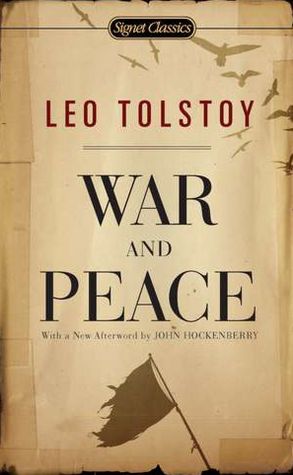 War and Peace, Leo Tolstoy
"It's a book that I never in a million years thought I would read (even though I'm an English teacher), but my book club decided they would do it. I am fully immersed in it. The first 100 or so pages were difficult just because of the many characters and getting the names straight (and feeling intimidated by the fact that it's War and Peace). But once you get over that, Tolstoy is so fluid and so all-encompassing and he understands human nature and the big picture so well, but he includes detail to make it seem here and now. The writing is a narrative, so you read it for a story, but you also get a sense of the history and the philosophical and ethical issues that people thought about at that time in Russia (and even now): the nobility and the peasants; why people go to war. You're also brought back by the everydayness of the characters that he creates, and they become real. It's a great read. We were supposed to read 200 pages and meet and read another 200 pages, but I've almost finished it because I've become so involved with it."
War and Peace, Leo Tolstoy
"It's a book that I never in a million years thought I would read (even though I'm an English teacher), but my book club decided they would do it. I am fully immersed in it. The first 100 or so pages were difficult just because of the many characters and getting the names straight (and feeling intimidated by the fact that it's War and Peace). But once you get over that, Tolstoy is so fluid and so all-encompassing and he understands human nature and the big picture so well, but he includes detail to make it seem here and now. The writing is a narrative, so you read it for a story, but you also get a sense of the history and the philosophical and ethical issues that people thought about at that time in Russia (and even now): the nobility and the peasants; why people go to war. You're also brought back by the everydayness of the characters that he creates, and they become real. It's a great read. We were supposed to read 200 pages and meet and read another 200 pages, but I've almost finished it because I've become so involved with it."
Emily, 37
Emily and I became fast friends when she started dating Jordy's cousin, Evan (Lulu's son). She is one of the funniest people I know. She was married here at the lake, and I was one of her bridesmaids. She returned the favor for me when I married Jordy. Her daughters, 4 1/2 and 2 years old, sandwich Emi in age, and the three of them are quite a sight to behold when they are galavanting together on the beach. Emily now does the Sunday crossword with Lulu, and she's the only person I know who can beat Jordy at Scrabble.
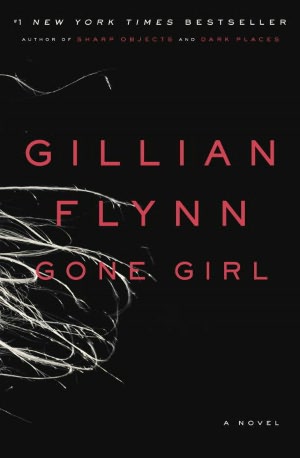 "I just finished Gone Girl, by Gillian Flynn. I loved it up until the very end, but I couldn't put it down---I was sneaking reads during work. It was a page turner, and you didn't know what was happening. It was a good mystery, and how you felt about the characters changed throughout the book at different points. I read The Art of Racing in the Rain at the beginning of the summer. It's written from the point of view of a dog---[she looks at me raising my eyebrows and goes, "I know, but it's really good."] the dog is this smart being, but because of how he was created (with a floppy tongue, no thumbs)---he's stuck with his thoughts and knowledge of things but no way to express himself. I just started reading Sharp Objects."
"I just finished Gone Girl, by Gillian Flynn. I loved it up until the very end, but I couldn't put it down---I was sneaking reads during work. It was a page turner, and you didn't know what was happening. It was a good mystery, and how you felt about the characters changed throughout the book at different points. I read The Art of Racing in the Rain at the beginning of the summer. It's written from the point of view of a dog---[she looks at me raising my eyebrows and goes, "I know, but it's really good."] the dog is this smart being, but because of how he was created (with a floppy tongue, no thumbs)---he's stuck with his thoughts and knowledge of things but no way to express himself. I just started reading Sharp Objects."
Alice and Claudia, 10
I've known Alice and Claudia (sisters, daughters of Jordy's cousin) since they were toddlers, speaking in one-word sentences and eager to investigate my shoes every time I came to their house. Watching them grow has been astonishing; if ever there were two more interesting 10 year olds, I don't know them. Alice is wonderfully imaginative and creative. This week, she made a magic wand for her brother out of a twig that she had stripped the bark off of in a striped pattern, and a vine woven around and anchored with pine sap. Claudia is thoughtful and funny and up for anything. She's also incredibly creative, and her wrists are buried in brightly colored friendship bracelets that she's made. The two sisters, along with their brother and cousins, are delighted to invite Emi to play with them, and are old enough to be able to tell her stories when she's older about her first years here.
Alice
 The Fingertips of Duncan Dorfman, Meg Wolitzer
"It's about this dude who plays Scrabble, and he has a power in his fingers to read things with his fingertips. They're in a tournament in Florida. I got it for my birthday from Grandma and Grandpa. It was on the Chautauqua reading list."
The Fingertips of Duncan Dorfman, Meg Wolitzer
"It's about this dude who plays Scrabble, and he has a power in his fingers to read things with his fingertips. They're in a tournament in Florida. I got it for my birthday from Grandma and Grandpa. It was on the Chautauqua reading list."
Claudia
 The Son of Neptune, Rick Riordan
"It's the second in a series the Heros of Olympus, which is the sequel series to the Percy Jackson series. It's about a boy, Percy Jackson, who's memory is taken by Hera/Juno, and he loses 8 months of his life with the wolf Lupa and her pack, learning to fight. Then he leaves the wolves and journeys to the Roman demigod camp and he's originally from the Greek demigod camp. I read the first one in the series and it was about a boy, Jason, who gets the same thing but goes from the Roman camp to the Greek camp, and he has to unite the camps before the prophesy can come true. It's so good, I've read it seven times."
The Son of Neptune, Rick Riordan
"It's the second in a series the Heros of Olympus, which is the sequel series to the Percy Jackson series. It's about a boy, Percy Jackson, who's memory is taken by Hera/Juno, and he loses 8 months of his life with the wolf Lupa and her pack, learning to fight. Then he leaves the wolves and journeys to the Roman demigod camp and he's originally from the Greek demigod camp. I read the first one in the series and it was about a boy, Jason, who gets the same thing but goes from the Roman camp to the Greek camp, and he has to unite the camps before the prophesy can come true. It's so good, I've read it seven times."
After a bit of questioning, Claudia admits she's read it seven times because she's already read (or can't find) the other books in the top of the boathouse, where the girls sleep. I promise to take her to town tomorrow to get a new book to read at the local bookstore. She'll read it and give it to her sister and cousins---I imagine that it will end up in one of the bookshelves in the house, waiting for Emi to grow into it. As for our trip into town, I can't promise anything, but it will likely include an ice cream cone. I know all too well that in a blink, Claudia will be old enough to drive herself, and in another one old enough for me to take her kids for her while she catches a moment to read on the beach.


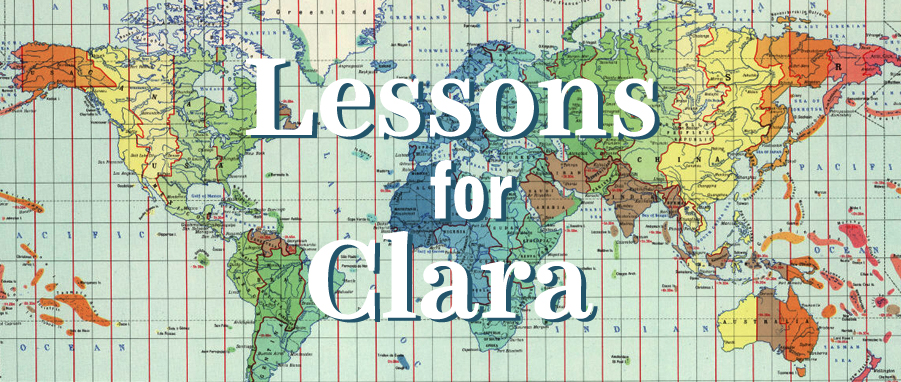







 Love is a tricky thing---and recognizing it can be more difficult than fairy tales would have us believe---but if there’s one moment when I realized I loved James, it’s that one. It’s a risky story to tell. Stories about watching the sun rise anywhere, let alone on remote beaches, can slide quickly into the realm of Hallmark greeting cards and can make even a hopeless romantic cringe. But the truth remains: I couldn’t help loving a man that appreciated a good sunrise.
Love is a tricky thing---and recognizing it can be more difficult than fairy tales would have us believe---but if there’s one moment when I realized I loved James, it’s that one. It’s a risky story to tell. Stories about watching the sun rise anywhere, let alone on remote beaches, can slide quickly into the realm of Hallmark greeting cards and can make even a hopeless romantic cringe. But the truth remains: I couldn’t help loving a man that appreciated a good sunrise.


 I recently picked up The Big House: A Century in the Life of an American Summer Home by George Howe Colt. It's a story of a summer house, like this one, and the family that inhabits it. I just started the book, but I love the way that the house and the land are intertwined with the family and its history. The author's memories of his grandparents are similar to the memories that Jordy has, and likely similar to the memories that Emi will have as she grows up. It was handed to me as soon as I arrived, looking for something to read. I just finished 1Q84, and needed something to thumb through at the beach in-between discussions of the latest article in People or Frank Rich's column that morning. Reading is an integral weft in the social fabric of the ladies at camp. We love books, we love to read, and we love to talk about what we're reading. Here's a sample of what's made an appearance at the beach this week. If some of the reviews seem short, it's because I made people tell me what they were reading as they were running through the house on their way to the beach, the grocery store, or to watch the Olympics (the only time, save for the U.S. Open, that the television is allowed on).
I recently picked up The Big House: A Century in the Life of an American Summer Home by George Howe Colt. It's a story of a summer house, like this one, and the family that inhabits it. I just started the book, but I love the way that the house and the land are intertwined with the family and its history. The author's memories of his grandparents are similar to the memories that Jordy has, and likely similar to the memories that Emi will have as she grows up. It was handed to me as soon as I arrived, looking for something to read. I just finished 1Q84, and needed something to thumb through at the beach in-between discussions of the latest article in People or Frank Rich's column that morning. Reading is an integral weft in the social fabric of the ladies at camp. We love books, we love to read, and we love to talk about what we're reading. Here's a sample of what's made an appearance at the beach this week. If some of the reviews seem short, it's because I made people tell me what they were reading as they were running through the house on their way to the beach, the grocery store, or to watch the Olympics (the only time, save for the U.S. Open, that the television is allowed on). Tender at the Bone, Ruth Reichel
"I love it. It's a memoir of her childhood with a very crazy mother and how food became so important in her life. She comes from a really crazy family, and she just by happenstance gets connected to a family that loves food, and she discovers that when the world isn't working well, you can make a good meal and all is suddenly right with the world."
Tender at the Bone, Ruth Reichel
"I love it. It's a memoir of her childhood with a very crazy mother and how food became so important in her life. She comes from a really crazy family, and she just by happenstance gets connected to a family that loves food, and she discovers that when the world isn't working well, you can make a good meal and all is suddenly right with the world." War and Peace, Leo Tolstoy
"It's a book that I never in a million years thought I would read (even though I'm an English teacher), but my book club decided they would do it. I am fully immersed in it. The first 100 or so pages were difficult just because of the many characters and getting the names straight (and feeling intimidated by the fact that it's War and Peace). But once you get over that, Tolstoy is so fluid and so all-encompassing and he understands human nature and the big picture so well, but he includes detail to make it seem here and now. The writing is a narrative, so you read it for a story, but you also get a sense of the history and the philosophical and ethical issues that people thought about at that time in Russia (and even now): the nobility and the peasants; why people go to war. You're also brought back by the everydayness of the characters that he creates, and they become real. It's a great read. We were supposed to read 200 pages and meet and read another 200 pages, but I've almost finished it because I've become so involved with it."
War and Peace, Leo Tolstoy
"It's a book that I never in a million years thought I would read (even though I'm an English teacher), but my book club decided they would do it. I am fully immersed in it. The first 100 or so pages were difficult just because of the many characters and getting the names straight (and feeling intimidated by the fact that it's War and Peace). But once you get over that, Tolstoy is so fluid and so all-encompassing and he understands human nature and the big picture so well, but he includes detail to make it seem here and now. The writing is a narrative, so you read it for a story, but you also get a sense of the history and the philosophical and ethical issues that people thought about at that time in Russia (and even now): the nobility and the peasants; why people go to war. You're also brought back by the everydayness of the characters that he creates, and they become real. It's a great read. We were supposed to read 200 pages and meet and read another 200 pages, but I've almost finished it because I've become so involved with it." "I just finished Gone Girl, by Gillian Flynn. I loved it up until the very end, but I couldn't put it down---I was sneaking reads during work. It was a page turner, and you didn't know what was happening. It was a good mystery, and how you felt about the characters changed throughout the book at different points. I read The Art of Racing in the Rain at the beginning of the summer. It's written from the point of view of a dog---[she looks at me raising my eyebrows and goes, "I know, but it's really good."] the dog is this smart being, but because of how he was created (with a floppy tongue, no thumbs)---he's stuck with his thoughts and knowledge of things but no way to express himself. I just started reading Sharp Objects."
"I just finished Gone Girl, by Gillian Flynn. I loved it up until the very end, but I couldn't put it down---I was sneaking reads during work. It was a page turner, and you didn't know what was happening. It was a good mystery, and how you felt about the characters changed throughout the book at different points. I read The Art of Racing in the Rain at the beginning of the summer. It's written from the point of view of a dog---[she looks at me raising my eyebrows and goes, "I know, but it's really good."] the dog is this smart being, but because of how he was created (with a floppy tongue, no thumbs)---he's stuck with his thoughts and knowledge of things but no way to express himself. I just started reading Sharp Objects." The Fingertips of Duncan Dorfman, Meg Wolitzer
"It's about this dude who plays Scrabble, and he has a power in his fingers to read things with his fingertips. They're in a tournament in Florida. I got it for my birthday from Grandma and Grandpa. It was on the
The Fingertips of Duncan Dorfman, Meg Wolitzer
"It's about this dude who plays Scrabble, and he has a power in his fingers to read things with his fingertips. They're in a tournament in Florida. I got it for my birthday from Grandma and Grandpa. It was on the  The Son of Neptune, Rick Riordan
"It's the second in a series the Heros of Olympus, which is the sequel series to the Percy Jackson series. It's about a boy, Percy Jackson, who's memory is taken by Hera/Juno, and he loses 8 months of his life with the wolf Lupa and her pack, learning to fight. Then he leaves the wolves and journeys to the Roman demigod camp and he's originally from the Greek demigod camp. I read the first one in the series and it was about a boy, Jason, who gets the same thing but goes from the Roman camp to the Greek camp, and he has to unite the camps before the prophesy can come true. It's so good, I've read it seven times."
The Son of Neptune, Rick Riordan
"It's the second in a series the Heros of Olympus, which is the sequel series to the Percy Jackson series. It's about a boy, Percy Jackson, who's memory is taken by Hera/Juno, and he loses 8 months of his life with the wolf Lupa and her pack, learning to fight. Then he leaves the wolves and journeys to the Roman demigod camp and he's originally from the Greek demigod camp. I read the first one in the series and it was about a boy, Jason, who gets the same thing but goes from the Roman camp to the Greek camp, and he has to unite the camps before the prophesy can come true. It's so good, I've read it seven times."






















